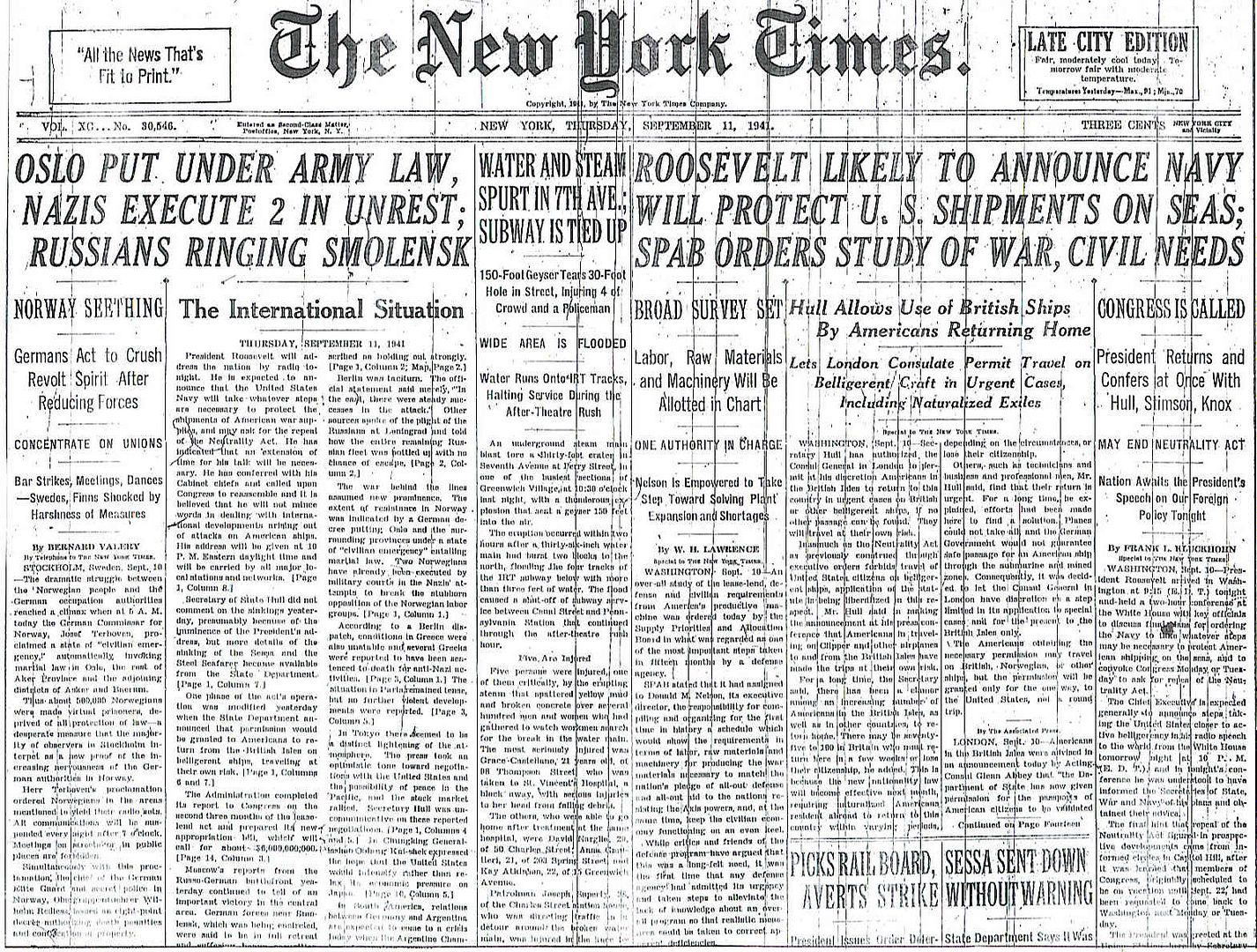
Posted on 09/11/2011 6:02:01 AM PDT by Homer_J_Simpson

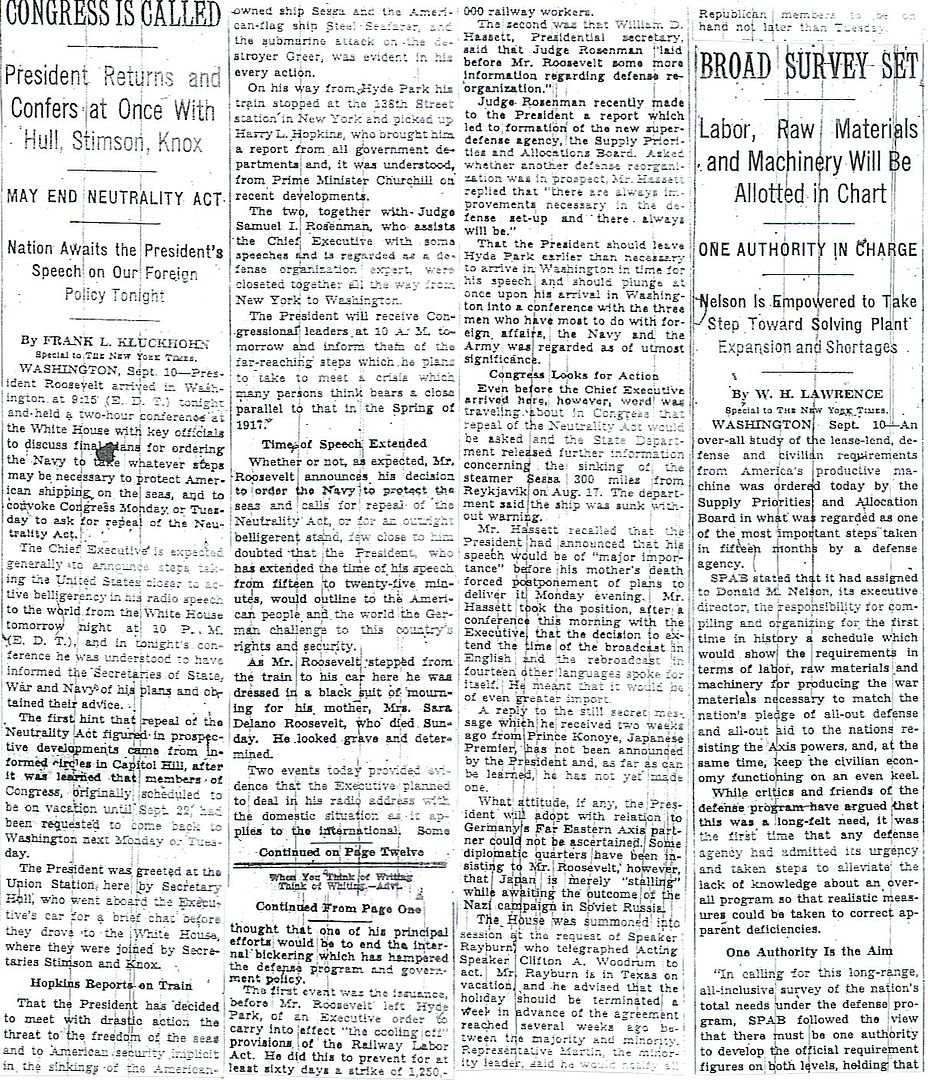
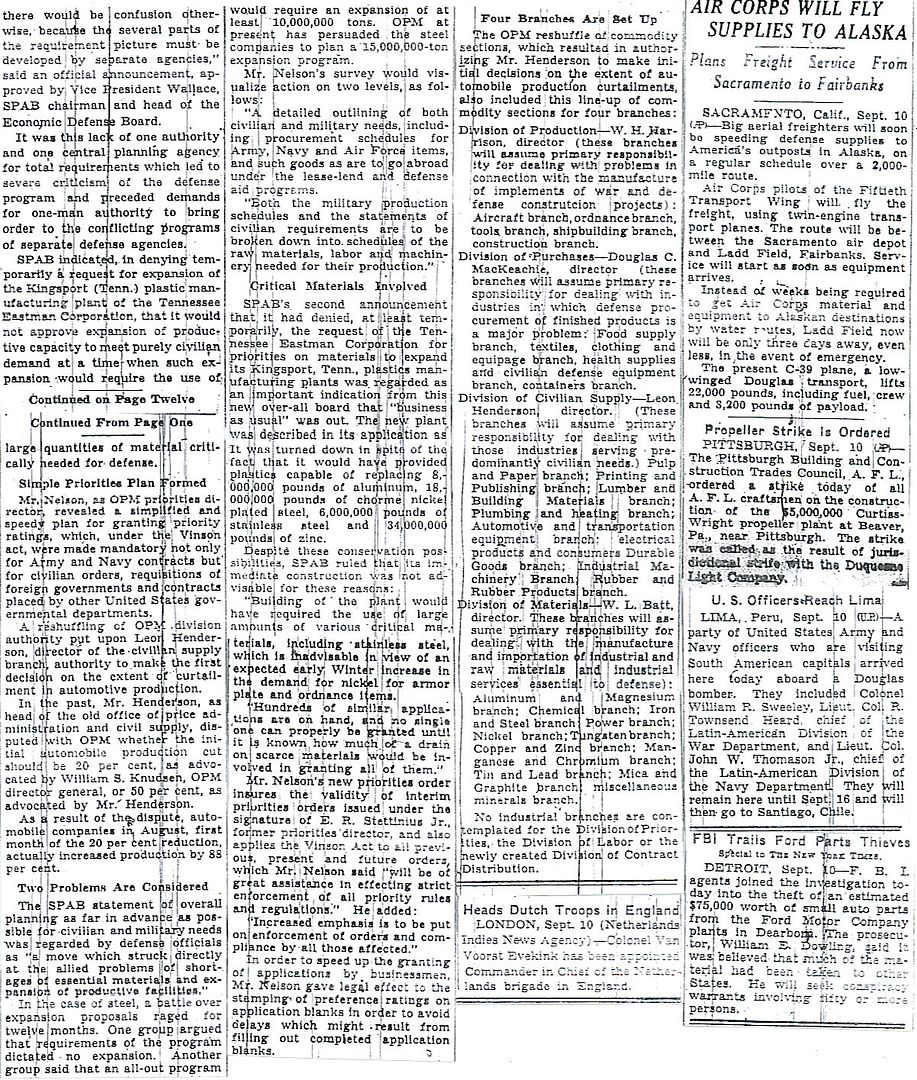
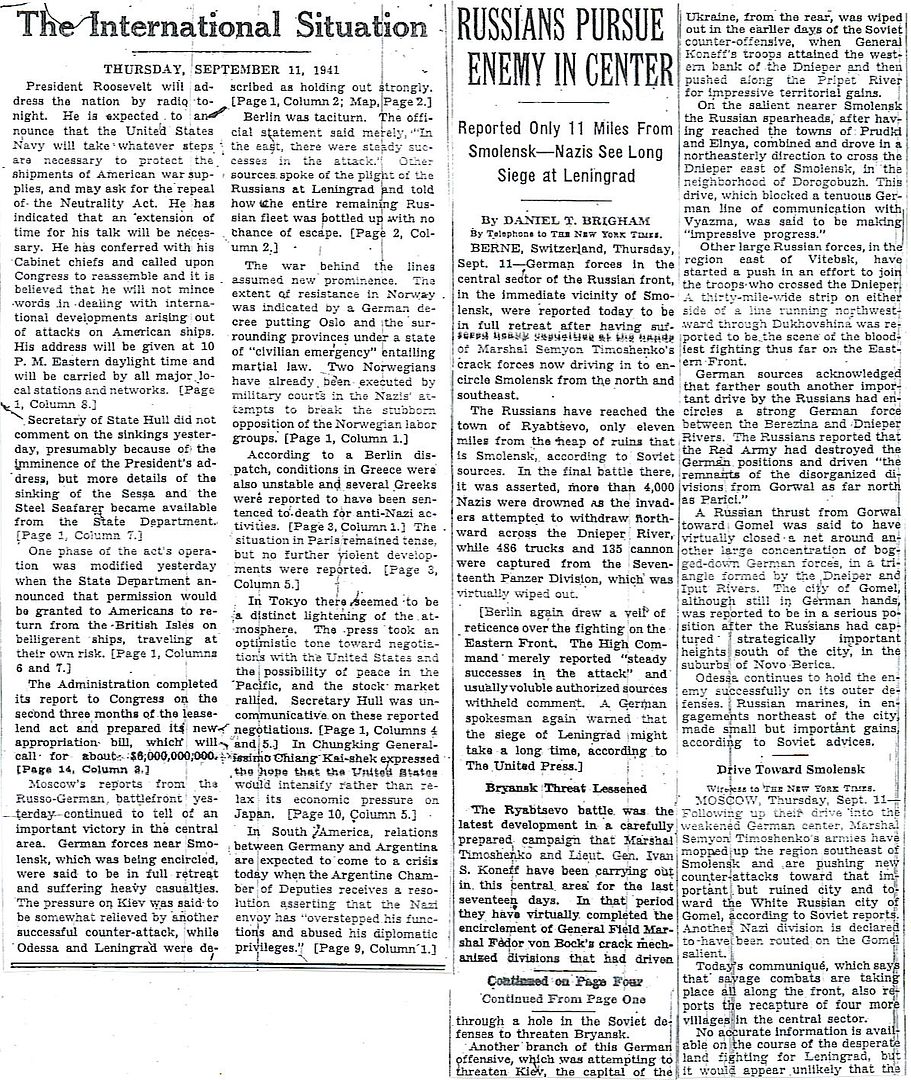
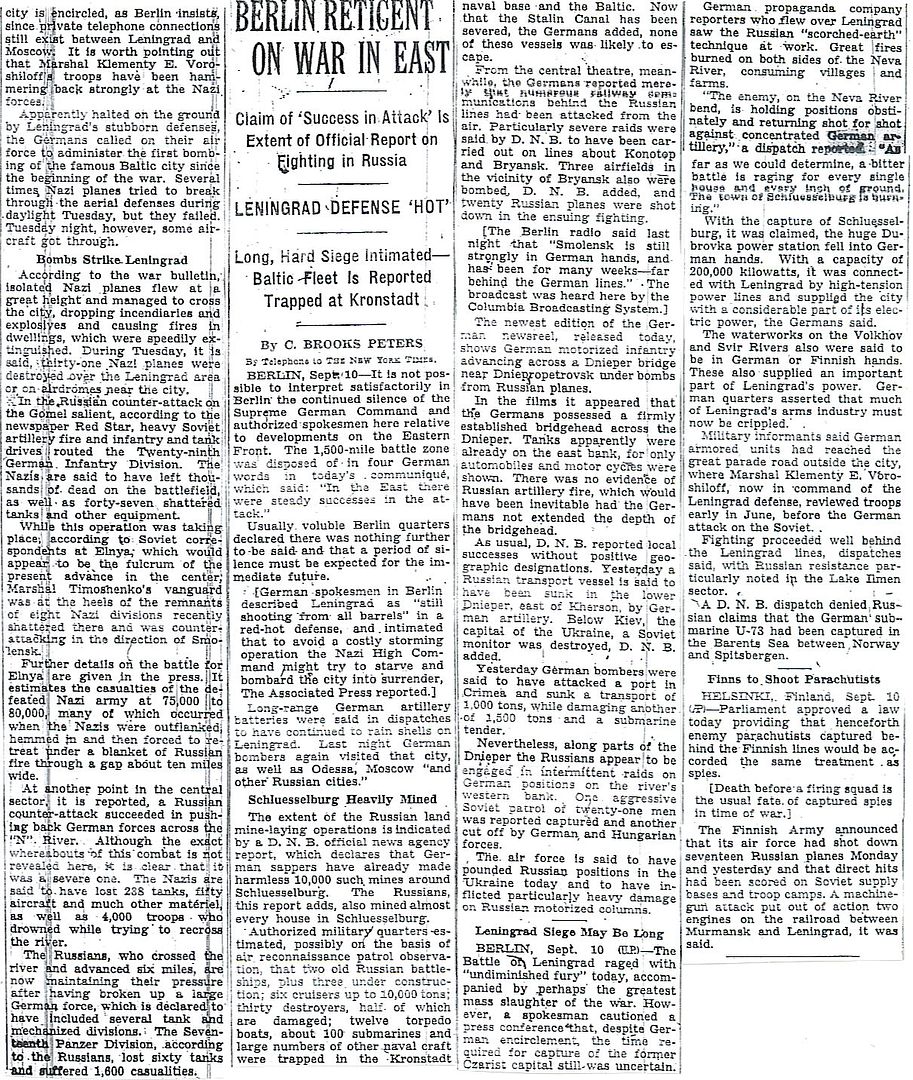
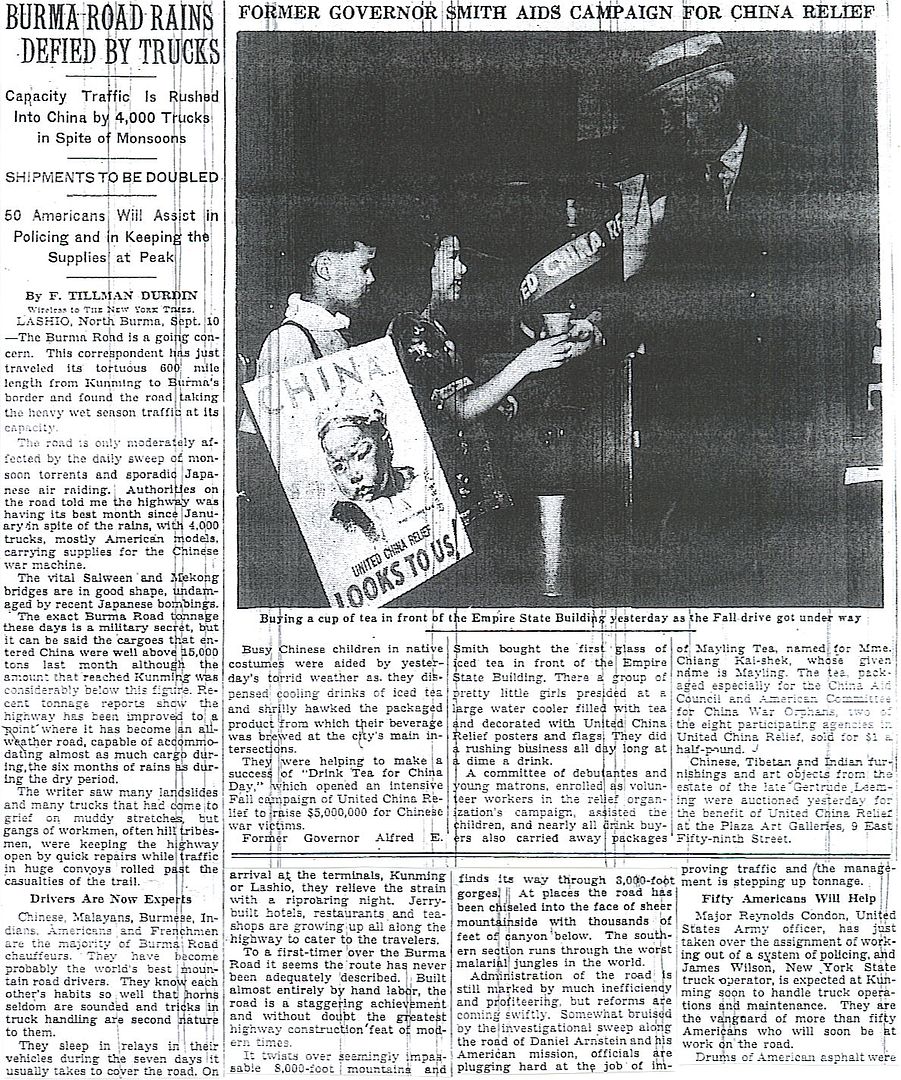
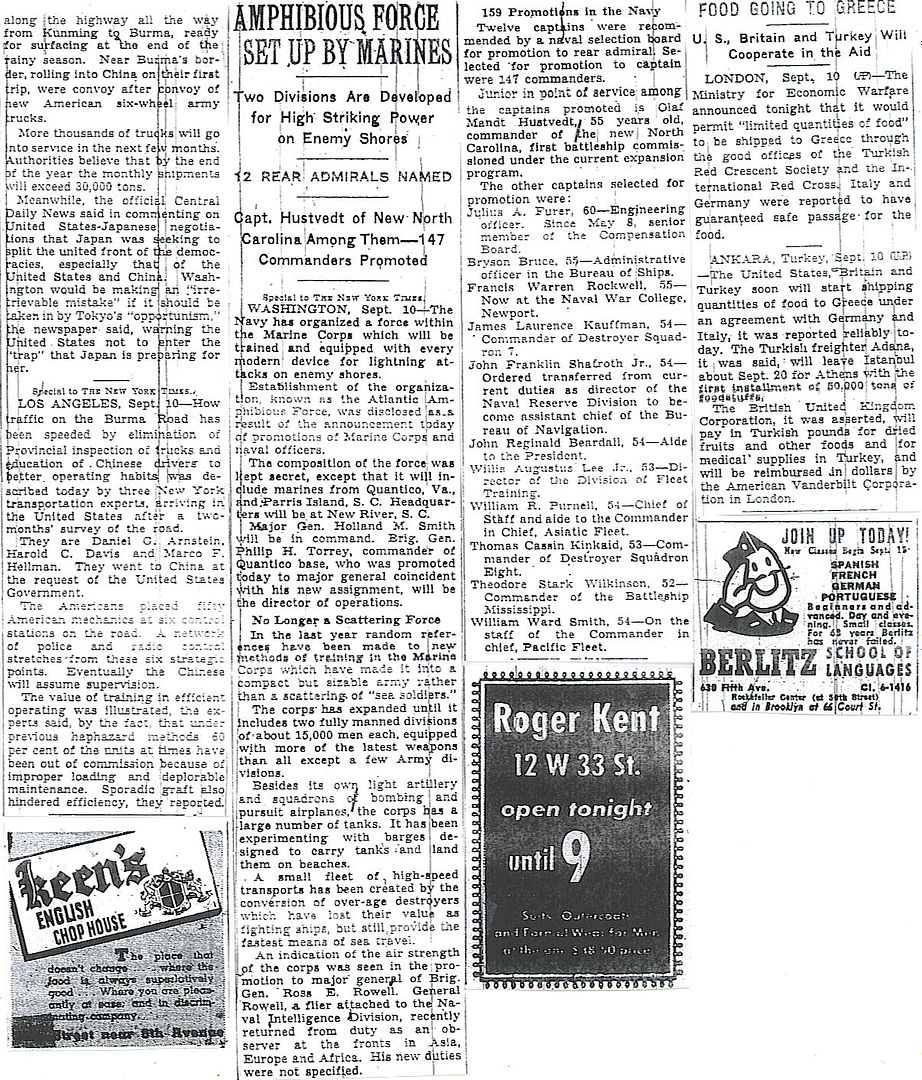
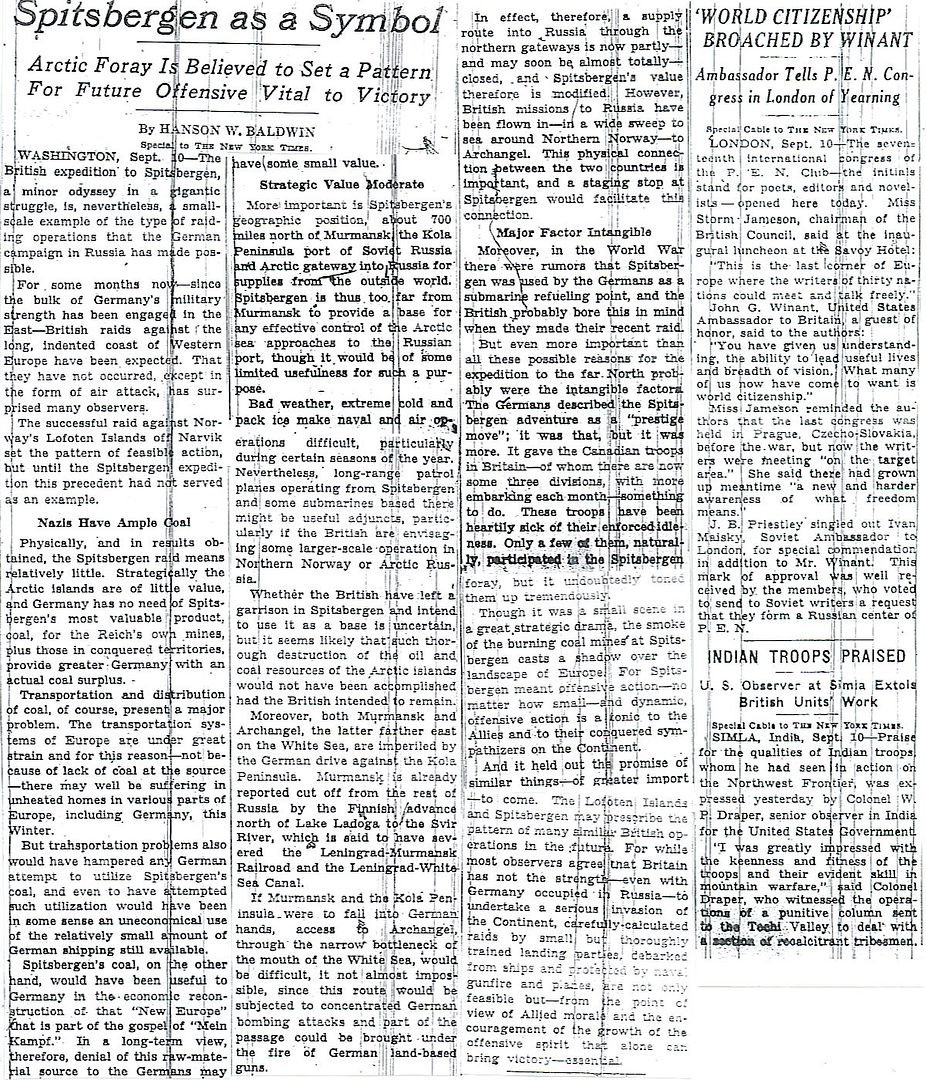
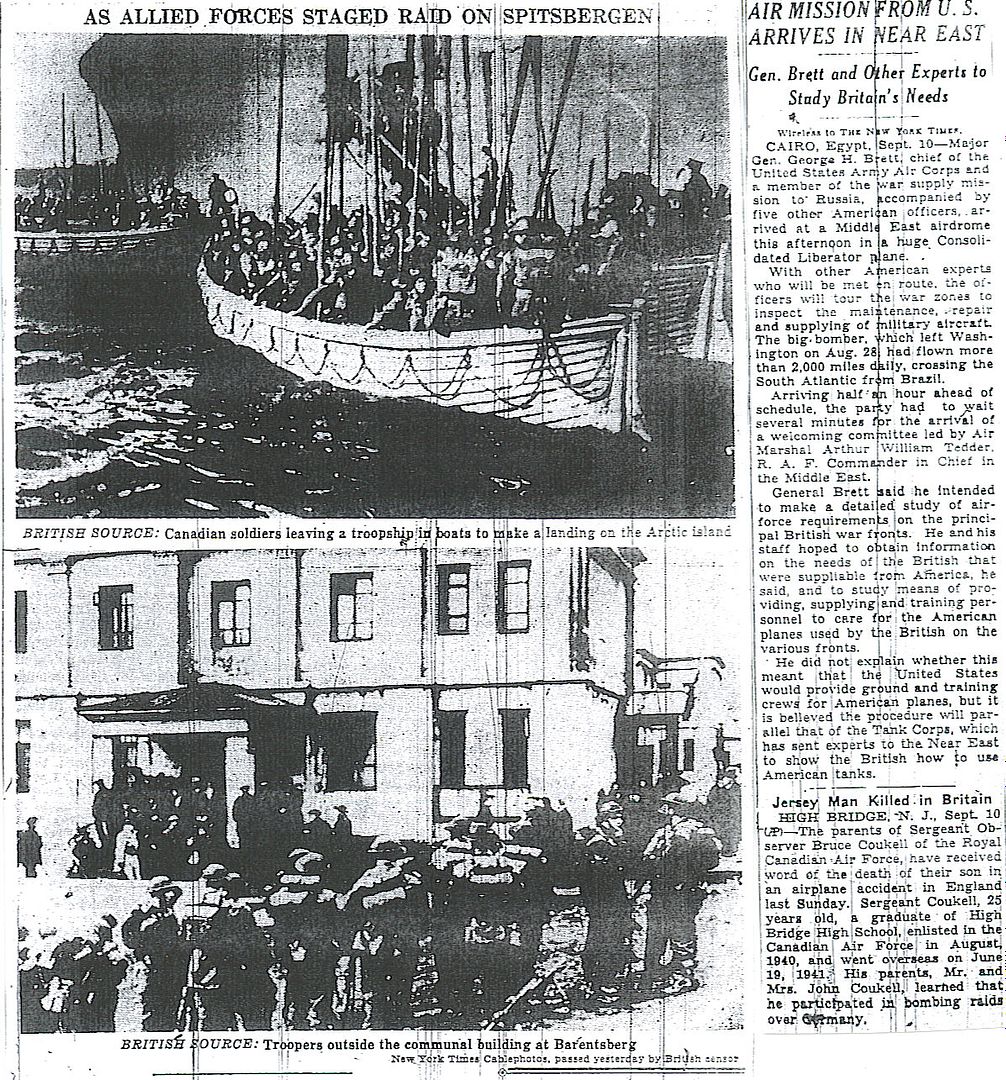
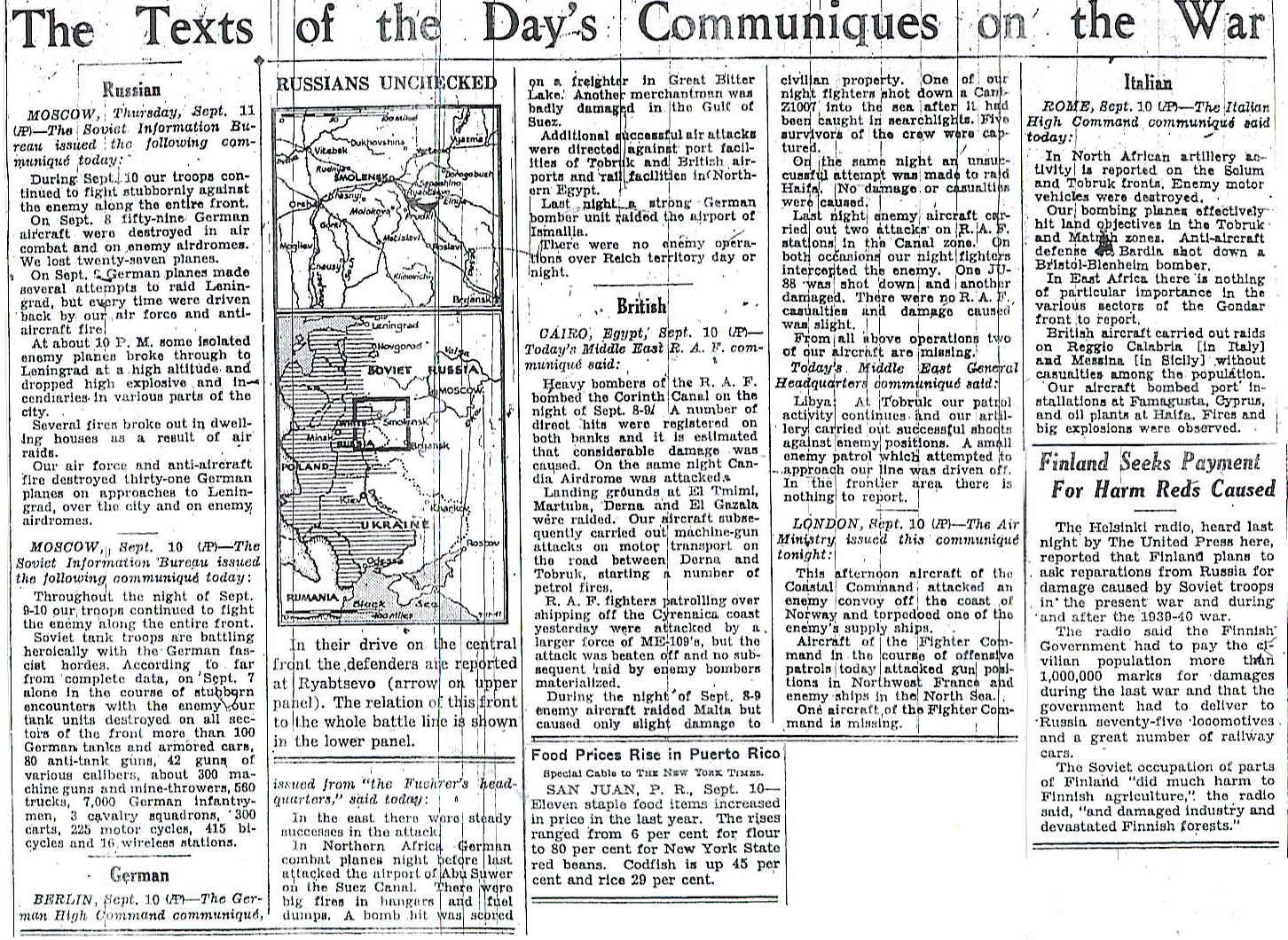
I doubt that.
Roosevelt’s focus from the beginning was Nazi Germany, so he was not going to be sidetracked into the Pacific while leaving leaving the main problem unattended to................................................... We were divided, many did not want to be involved in another war in Europe. Dec. 8 1941, the lines at the recruiting office were for Japan. Remember Roosevelt said; “I hate war, Elenore hates war and even Faller hates war”, he also said no American Boy would set foot on foreign soil. Sure he was out to save Churchill, no big secret there. Joseph Kennedy our ambassador to England, advised against going to war against Germany. There was also congressional opposition to the war. Hitler declaration of war made it easy for Roosevelt, and Churchill was ecstatic. Hitler was hoping that Japan would help him with Russia. Tsk Tsk, it was the biggest blunder he made, it probably cost him the war.
Bringbackthedraft: "Joseph Kennedy our ambassador to England, advised against going to war against Germany."
Kennedy & Roosevelt by "now" thoroughly disliked each other, even though Kennedy had been one of FDR's strongest backers.
In the end, Kennedy came to hate FDR, blaming him for the death of Kennedy's eldest son, Joe Jr.
To understand this completely, you need dig no further than the following: as a man of Irish descent, Kennedy naturally hated the Brits, and wanted to see them humiliated.
He was also sympathetic to the Nazi cause.
Roosevelt, on the other hand, was of Dutch descent, and all "little Dutchmen" naturally hated their arrogant and overbearing German relatives.
Roosevelt saw what the Germans did to countries they conquered in the First World War, and believed Germany had to be reduced back to a state of military impotence.
Bringbackthedraft: "There was also congressional opposition to the war.
Hitler declaration of war made it easy for Roosevelt, and Churchill was ecstatic."
Congressional opposition to war evaporated with Pearl Harbor, and with Hitler's declaration of war on the US.
This latter was most convenient for Roosevelt because top US and British military had long worked developing plans to defeat Hitler first, then Japan.
But suppose Hitler had not declared war, suppose instead he went on some sort of "peace offensive" with the United States?
Well, the supposition is impossible, because in that case the Japanese would have called off their planned attacks and invasions.
Then the US would have been left to deal with a very different situation.
However, any idea of a German "peace offensive" is out of character for Hitler.
To be even slightly credible, it would require German generals to first overthrow Hitler, then ask for peace -- something they would not possibly do in the summer of 1941.
At some point here I'll have to look up the reference, but I am certain that Hitler assured the Japanese ambassador in Berlin: Germany will support Japan's efforts against the Allies.
This assurance was then radioed to Tokyo in a diplomatic code that was intercepted, broken, translated and read by Brits.
So the Allies knew ahead of time that when Japan went to war, so would Germany.
Bringbackthedraft: "Hitler was hoping that Japan would help him with Russia.
Tsk Tsk, it was the biggest blunder he made, it probably cost him the war."
I think the truth of the matter is slightly different.
It's that Hitler never insisted that Japan attack Russia, and the reason is pretty obvious: in the summer of 1941, when it might have mattered, Hitler believed he would be victorious in Russia without Japanese help.
Therefore, it was perfectly OK with Hitler for Japan to attack the Brits, Dutch and Americans -- they were all push-overs anyway.
Hitler could take care of the Russians, or so he believed in 1941.
http://homepage.ntlworld.com/andrew.etherington/month/thismonth/11.htm
September 11th, 1941
UNITED KINGDOM: No. 56 Squadron at Boscombe Down, Wiltshire, becomes the first RAF squadron to receive the Hawker Typhoon Mk. IA. (Jack McKillop)
Light cruiser HMS Bermuda launched. (Dave Shirlaw)
FRANCE: Paris: The newspaper La Semaine states “We are not used to such a tempo of events in Paris,” the reference is to the return from holidays in Nice of such stars as Maurice Chevalier, Vivienne Romance, Cécile Sorel, Tino Rossi and René Lefèvre.
GERMANY: U-658 launched.
U-587 commissioned. (Dave Shirlaw)
U.S.S.R.: The government warns Bulgaria against allowing its territory to be used as a basis of attack by Germany and Italy. (Jack McKillop)
Soviet Submarine USSR P-1: End service: Sank during transport task on mine fields Uminda or Korbetta. All hands lost (53 men). (Dave Shirlaw)
JAPAN: A United Press dispatch from Tokyo gives the following information: “Emperor Hirohito today took direct command of Japanese Army Headquarters and moved to assure close Army collaboration with Premier Fumimaro Konoye’s Government, which appeared to be trying to keep Japan out of war even if that meant drifting away from her Axis ties.” (Jack McKillop)
Emperor Hirohito assumes personal command of the Japanese Army, a move misread by American intelligence analysts as indicating a personal commitment to peace by the Japanese sovereign. (Marc Small)
COMMONWEALTH OF THE PHILIPPINES: George advises MacArthur that the total end strength of the FEAF ought to be 27 pursuit squadrons, eighteen light or medium bomber squadrons, and thirty heavy bomber squadrons. (Marc Small)
CANADA: Corvette HMCS Summerside commissioned. (Dave Shirlaw)
U.S.A.: In a broadcast to the nation at 9pm tonight, President Roosevelt issues the “Shoot on Sight” order to naval forces in the Atlantic in regard to German U-Boats. This action is partly in response to the Greer “incident” of September 4. It is, in fact, more or less what is going on at the present. He describes the attack last week on the Greer as “piracy, legally and morally.” He said that the outposts the USA has established in Iceland, Greenland, Labrador and Newfoundland would protect Atlantic shipping of all nations. He stressed that the US Navy only provides “invincible protection” if Britain’s Royal Navy survived.
The president emphasized the difficulty of defending ships from torpedoes fired from submarines; “When you see a rattlesnake poised to strike, you do wait until he has struck before you crush him, ...., these Nazi submarines and raiders are the rattlesnakes of the Atlantic - they are a menace to the free pathways of the high seas.”
Stark advises Hart that Washington had declined to endorse Allied mobilization plans proposed by the British for joint operations in the event of war. Hart ordered to defer plans to move the Asiatic Fleet to Dutch or British ports when hostilities began. Hart ordered to ensure his fleet operations were “co-ordinated” with British and Dutch operations.
Washington: Ground breaking ceremonies for the Pentagon building take place. (Jack McKillop)
President Roosevelt submitted report on lend-lease $7,000,000,000 appropriation to Congress. (Dave Shirlaw)
Des Moines: Famed aviator Lindbergh makes a speech against further US involvement in the war.
ATLANTIC OCEAN: The German submarine U-207 is sunk in the Straits of Denmark southeast of Angmassalik, Greenland, in position 63.59N, 34.48W, by depth charges from the RN destroyers HMS Leamington and HMS Veteran. All 41 hands on the U-boat are lost. (Jack McKillop)
USS Twiggs (DD-127) was commissioned as HMS Leamington (G-19) on 23 Oct. 1940, part of the destroyers-for-bases deal. (Ron Babuka)
U-105 sank SS Montana.
U-202 sank SS Scania in Convoy SC-42.
U-207 sank SS Berury and SS Stonepool in Convoy SC-42.
U-432 sank SS Garm in Convoy SC-42.
U-433 sank SS Bestum in Convoy SC-42.
U-82 sank SS Bulysses, SS Empire Crossbill, SS Gypsum Queen and damaged SS Scania in Convoy SC-42. (Dave Shirlaw)
Disclaimer: Opinions posted on Free Republic are those of the individual posters and do not necessarily represent the opinion of Free Republic or its management. All materials posted herein are protected by copyright law and the exemption for fair use of copyrighted works.